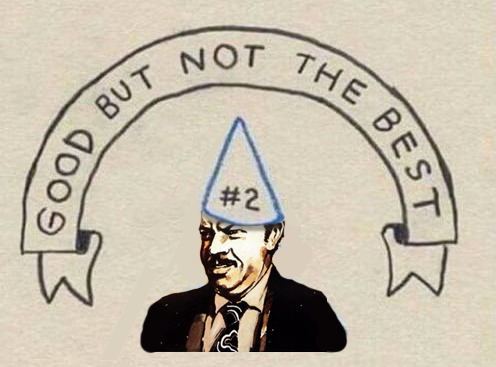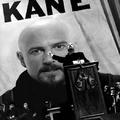
A Media criticism c. tárgyunk Robert Langdonnal (garbó és Tom Hanks frizura) úgy indult, ahogy egy gimis pályafutás végződni szokott: jobb híján filmnézéssel. A Citizen Kane-t, vagyis az Aranypolgárt néztük meg, ami minden idők legjobbnak tartott filmalkotása, melynek – hogy úgy mondjuk – nem tett túl jót az idő vasfoga, főleg abban a tekintetben, hogy vélhetőleg a világon egyedülálló módon reggel nyolctól volt a vetítés. Házi feladatként egy korabeli újságíró szemszögéből kellett recenzálni. Sorozatunk első részéből kitűnik, hogy még a gyakorlott újságíró is fényesít a véleményén, ha angolul kell megfogalmaznia egy igazi filmsznob oktatónak referálva.
These days there are more and more pictures in the cinemas, the movie theaters are full with audience and the producers can’t make more money with a movie as they did in the last year. Hollywood has become one of the biggest industries in the US, and it inspires more and more directors to make their dream true. A month ago I came out the full-glass gate of my favourite cinema and I looked around, there was a huge crowd, everybody talked about the story of the movie, which character was their favourite, what will be the best decision for the disrupted lovers in the story. A young lady showed an article to her friend with a giant picture of a movie star: ’That story sounds great, let’s watch it!’ she said. They ran to the box office to buy new tickets for the „same” picture with a different title. I stood in the cold wind and I decided I didn’t want to be a part of this industry of storytelling.
A week ago one of my friends from a prominent newspaper said there is something I have to see. A film made by a twenty-six years old writer and director, Orson Welles, ’It is about the life of a press-mogul…’ – he started, but I shook my head intantly – ’I really don’t want to watch stories in the cinema, that is not why I fell in love with the cinema when I was a child. But that time has passed far away, I don’t like too much that is on the screens in movie theaters nowadays.’ But he convinced me that this is something different and the movie-fanatic kid who lived deep inside my soul wanted to believe it is worth to try it.
The Citizen Kane came from the lee, from a real negative territory. On the one hand, it is a movie up to blood, I almost hear the sound of the film roll, I saw the hard work to set the scenes, the serious planning beyond the movement of the lights and the actors are operating like precise instruments on the stage. Welles didn’t want to hide that part of his work, he proudly stand in the center of the river of movie creators, he draws a lot from the masters of the past but at the same time he uses these mosaics with his own, quite experimental method. The opening pictures came from a Dracula-style horror movie, the next minutes were made in the style of a newsreel, and so on, many familiar pieces of a jigsaw puzzle but from different sets of it.
On the other hand, Citizen Kane is not a postmodern cinema, there are not only bricks from different houses but a strong structure, the paralell worlds of a man’s life and the blast of the modern media empire. We knew what this young man made from the classic novel of H. G. Wells, The War of the Worlds in his radio drama, and we also know the aftermath of its broadcasting. He handles the reflective world of the media quite smart because he knows the motives and the attributes from a close proximity. He elegantly knows and shows the negative field of media. Negative: it is not an evaluation but the nature of media, it is always delimited with other things, people, places, creations: without these the media is nothing itself. Charles Foster Kane is not only the richest man of the Big Apple but the lord of that betweenness who controls the negative territory among the people with all of that’s gains and responsibilities.
And somehow that negative field is the basis of the main symbol of the movie. The media-mogul’s mysterious last word ’Rosebud’ always appears as an other woman, a secret chapter of his life, or ’something else’ that is out of the public life of Mr. Kane. And there is the biggest mistake of the movie: the last scene reveals the truth behind the riddle, Rosebud is a sled from Kane’s childhood. With that movement Welles says the right answer to the question of the movie and with that, the symbol is disappearing and the multiplicity turns into a simple line: to wish ourself back to childhood and to reset our life. But I really can’t judge him for that because after I saw Citizen Kane I turned into a child again and forgot the movies which were made only for telling a story and I started to remember what the main objective is for making a movie: to create not only a story, not only well-composed pictures, nice characters but over all – to make a movie!
A bejegyzés trackback címe:
Kommentek:
A hozzászólások a vonatkozó jogszabályok értelmében felhasználói tartalomnak minősülnek, értük a szolgáltatás technikai üzemeltetője semmilyen felelősséget nem vállal, azokat nem ellenőrzi. Kifogás esetén forduljon a blog szerkesztőjéhez. Részletek a Felhasználási feltételekben és az adatvédelmi tájékoztatóban.



